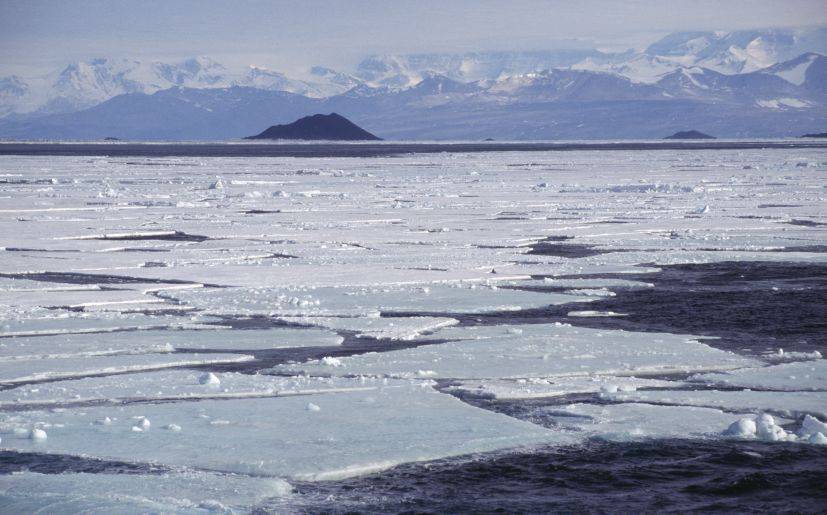
The fast thaw caused by the climate change in it Arctic This has created blocks of ice that flow southwards across the ocean and which in recent years have affected the navigation season, the period during which a route is navigable for certain vessels.
A study published this Thursday in the journal ‘Communications Earth & Environment’, has confirmed that between 2007 and 2021, the increase in these blocks of sea ice reduced maritime traffic at several points in the Northwest Passage, the commercial maritime route that connects the Atlantic and Pacific oceans and crosses the Arctic Circle to the north of North America.
In light of these data, the authors of the study, led by Alison Cook of the Scottish Association for Marine Science, warn that the Northwest Passage is unlikely to become a real alternative to traditional shipping routes as had been proposed.
Sea ice charts
Although seasonal sea ice – the kind that thaws in summer and forms in winter – has been shrinking at a very rapid rate due to climate change, this has released thick, multi-year, centuries-old ice from further north into shipping channels.
And those thicker ice blocks are more dangerous and unpredictable and create “choke points” on current shipping routes.
The maritime sector moves billions of dollars a year and transports almost the 90% of all goods worldwide, so determining exactly what the status of the route through the Northwest Passage is of great interest.
To conduct the study, the team used sea ice charts from the Canadian Ice Service and calculated the number of weeks per year that ships could safely pass through ice up to 70 cm thick between 2007 and 2021.
They found that the sailing season during this period had been significantly shortened in three sections of the northern route: the eastern end of the Beaufort Sea (a decrease of 14 weeks), and M’Clure Strait and Viscount Melville Strait (both 5 weeks shorter).
They also found that M’Clure Strait (as well as Larsen, Peel and Viscount Melville Straits) acted as choke points in the Northwest Passage, experiencing 10 to 25 weeks less navigation than other sections.
Avoid assumptions
Given these data, the researchers caution that the shipping season on all Northwest Passage routes will be highly variable, so assumptions that reduced sea ice will allow safe passage via the northern route should be avoided.
“Cruise ships, cargo ships and oil tankers will target these channels, especially between August and September, when there is less sea ice, but this is the time when multi-year ice could be more frequent.”“,” Cook says.
“For example, previous studies had suggested that the northern route through the Northwest Passage might become less risky in the future, but this study shows that long stretches of this route experienced significant decreases in the length of the shipping season between 2007 and 2008.”
“Climate change is unlikely to result in a sustained increase in the shipping season on the northern route of the Northwest Passage due to the continued presence of hurricanes”concludes the researcher.
Source: Gestion
Ricardo is a renowned author and journalist, known for his exceptional writing on top-news stories. He currently works as a writer at the 247 News Agency, where he is known for his ability to deliver breaking news and insightful analysis on the most pressing issues of the day.











